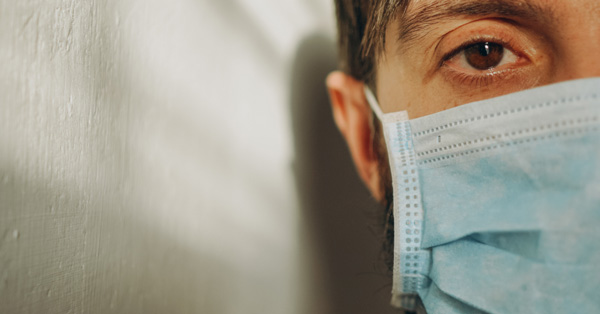As COVID-19 vaccines and research initiatives continue at full throttle, many individuals can begin to take a deep breath and imagine a world without COVID-19. Of course, this will not be a day and night transition, but the direction in which we are heading seems hopeful. However, as a consequence of COVID-19, the mental health of our population has been severely affected and will unfortunately continue to be afflicted for many years to come.
Not surprisingly, COVID-19 has overwhelmed essentially everyone. People are grappling with isolation, social withdrawal, depression, PTSD, anxiety, concentration difficulties, troubled sleeping, disrupted appetite, irritability, and many more symptoms yet to be openly expressed. Along with an increase in mental health crisis, it has also become excessively difficult to access mental healthcare. Roughly 8 months ago, the Center for Disease Control and Prevention (CDC) conducted a string of surveys concentrating on the expression of psychological conditions because of the pandemic. Finalized outcomes from these questions concluded that 40% of American have been experiencing both behavioral and mental ailments because of the COVID-19 pandemic. Furthermore, the rate at which the population is developing conditions related to mental health is rising exponentially. Even individuals who have been infected by COVID-19 and were able to recover, are entrenched with symptoms such as nervousness, depression, guilt, fear, worry, stress, and even hopeless thoughts. Of course, this is not surprising since many millions of Americans have lost employment, homes, and loved ones.
One of the highlighting opportunities that has presented itself is the increased empathy and efforts to de-stigmatize mental health problems. Subsequently, since almost everyone has been overwhelmingly rained down with pressure, trauma, and sadness, we have all become more cognizant, and understanding of what our community is enduring. Considering this though, reliance should not completely be concentrated solely on individual’s sympathy and empathy, especially when we have trained mental health professionals and organizations that specialize in assisting individuals suffering from these afflictions. Therefore, to ensure that we do not just recover from the pandemic, and completely forget about the mental health crises currently ensuing in America, we must increase and promote the various healthcare opportunities presented. For example, we are all aware of therapists, school counselors, and social workers as methods to improve a person’s mental state, but if we are to be successful, we need to be thinking outside of the box in terms of psychological healthcare. This creativity could take the form of advocacy, online telehealth groups, employer benefits for mental health, pursuing research trials as a care option, using untaxed money to pay for health services, and increasing funding for community-based providers. These opportunities are best represented as water droplets compared to the ocean of ideas yet to be implemented and discussed.
COVID-19 is not just an infectious viral disease that a person experience physically. There are numerous mental, emotional, and social dimensions that are being affected as well. Here at Segal Trials, we have taken this issue personally, and have implemented a recruitment and marketing team that focuses on de-stigmatizing mental health, spreading advocacy, and informing the public on the benefits joining a research study can create.
To learn more about options at Segal Trials, visit our Enrolling Studies.


